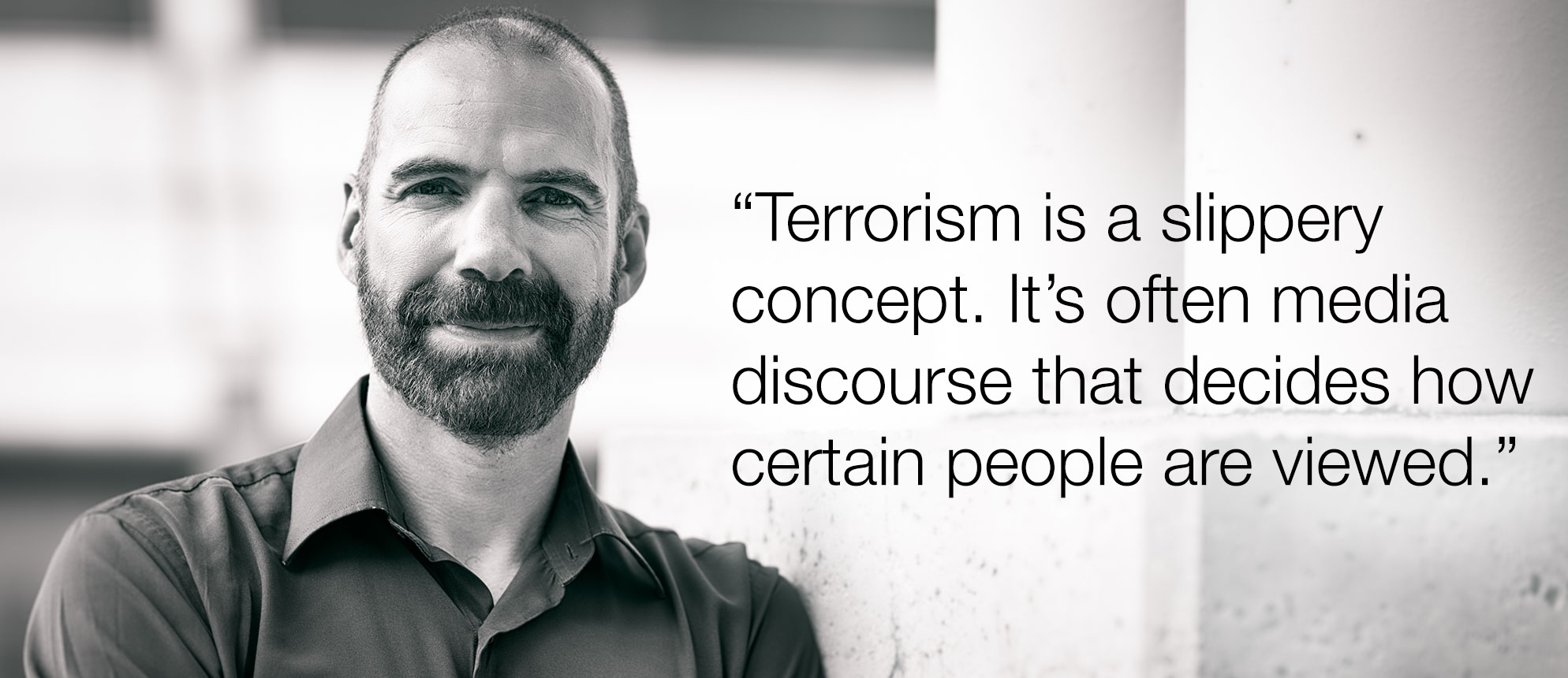- Future Students
- Current Students
- Faculty
- Staff
- Alumni
- Others
Analyzing terror talk

In the 15 years since September 11, 2001, terrorism has had a near-constant presence in the media. It’s become all but impossible to discuss issues like immigration, policing and state surveillance without the threat of terrorism arising to dominate the story. When we’re scared, we have a tendency to overreact, so Dr. Don Moore, a Professor of Media Studies at the University of Guelph-Humber, has launched a new research project to give Canadians better access to information about terrorism.
Working with the Canadian Writing Research Collaboratory (CWRC), an online project with contributors from dozens of universities across the country, Dr. Moore and Project Manager Ryley Liddle have created Terrorizing Media, a digital archive that collects and analyzes mass media depictions of terrorism.
“Terrorism is a slippery concept, and it’s often media discourse that decides how certain people are viewed,” says Dr. Moore. “Terrorism has to be a surprise that’s massive and does as much damage as possible, but it needs to be on the news to be truly effective. Contemporary terrorism happens in the media, and if it isn’t a news story, then it didn’t really work as it was meant to.”
Because the media has a hand in spreading terror, Dr. Moore’s project has collected hundreds of articles, images, videos, news reports, podcasts and other media about or related to terrorism and highlighted some of the common journalistic tropes and stereotypes that appear throughout them.
“For democracy to work, people need a healthy journalism system. You need to be informed,” he says. “We want to improve media literacy on the topic of journalistic depictions of terrorism and the terrorist other to help people make better decisions and be able to participate in the democratic process in a more meaningful way.”
While Terrorizing Media is meant to be a resource for journalists and the general public, Dr. Moore also hopes it will enable more scholarly research. He’s especially interested in possibilities for undergraduate research on the topic.
“By collecting news media, we’re critically engaging with these topics and providing scholars and researchers the tool to do their own research,” says Dr. Moore. “When we have a lot of students engaging in this work, it not only helps develop their research skills, it also informs them of important complexities and trends in the media. We welcome those scholars and students to submit their essays or articles that make use of our data, and we’ll feature them on our critical engagement section.”
One student who has benefited from the Terrorizing Media project is third-year Media Studies student Ryley Liddle. After hearing Dr. Moore give a public lecture on his terrorism research, Ms. Liddle approached him and asked if there were any opportunities to help support his work. She’s since helped Dr. Moore with data collection, research methods, planning and designing the website and she now runs Terrorizing Media as project manager.
“I’ve always wanted to be part of a scholarly project, but I never thought it would happen during my undergrad,” Ms. Liddle says. “I jumped at the chance to learn more about the topic and about research itself. It’s the chance to be part of groundbreaking research, and that’s the opportunity of a lifetime for an undergraduate student.”
Learn more about research at the University of Guelph-Humber.
Learn more about Media Studies at the University of Guelph-Humber.

